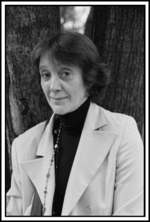Dr. Irina Odinets began her career in organophosphorus chemistry more than 30 years ago. The breadth of her research interests in phosphorus chemistry was very wide, encompassing both theoretical and practical aspects. She carried out systematic investigations of the reactivity of organophosphorus CH-acids in alkylation and acylation reactions under phase-transfer catalytic conditions. The factors that were revealed to determine the chemo- and stereoselectivity of these processes, significantly improved the known synthetic results and formed the basis of effective and environmentally friendly synthetic approaches to novel cyclic and acyclic organophosphorus compounds. A special mention should be made to her works dealing with the adoption of green chemical techniques in phosphorus chemistry. Thus, she showed in principle the possibility of application of ionic liquids and water to a range of key transformations in organophosphorus chemistry, e.g., the Arbuzov reaction, aza-Michael addition, etc. Of particular interest are her recent investigations focusing on the problems of coordination chemistry, including the synthesis of novel types of both three- and four-coordinated phosphorus derivatives as ligand-blocks for homogeneous catalysis and extraction of f-elements and noble metals. She was also active in more conventional trends of phosphorus chemistry, such as the synthesis of biologically active compounds. She developed a unique method for the preparation of phosphinothricin—a modern nonsystemic herbicide. The works concerning the development of anticancer agents based on phosphorylated 4-piperidinones have been continued and the first promising results have already been obtained.
When, in 2006, Dr. Irina Odinets became the head of the Laboratory of Organothiophosphorus Compounds, previously directed by Martin Kabachnik and Tatyana Mastryukova, she managed not only to retain all the traditions, but also introduced novel directions in the research activity of the group. Her untimely death is an irreplaceable loss for the whole laboratory. In recent years, she became a linker between phosphorus chemists from Russia and foreign colleagues. She had a lot of friends among scientists from all over the world and developed cooperation with scientists in Germany, Poland, Hungary, and others. She organized an excellent conference in Saint Petersburg in 2008. Dr. Odinets is an author and co-author of more than 130 papers, five book chapters, and 10 patents. Professor Odinets was a respected member in the organophosphorus society. She was a regular participant of International Conferences on Phosphorus Chemistry. In the recent conference held in Rotterdam, we badly missed her. She evaluated many papers submitted to different Journals including Phosphorus, Sulfur, Silicon, and the Related Elements. Her evaluations were complete, extensive and rigorous, and always with useful suggestions for improvements.
She was an amazing person and could charm at a glance. Very kind and open to others, she never refused to help with any problem, even when it was not connected with her work. Dr. Odinets took care of one of her previous colleagues when she remained alone and was hospitalized for a long period of time. She managed her work and family at the same time. She was proud of her daughter and grandson. She was very interested not only in science, but also in theater, art, literature, and cinema.
Over the last few years, we had started worrying because we knew she needed quite intensive medical treatment. However, we trusted that Irina would overcome the disease. Unfortunately, this was not the case, and from mid-April Irina became weaker and weaker. She helped her colleagues and communicated with friends till the end. Irina, we shall miss you much, good bye!
